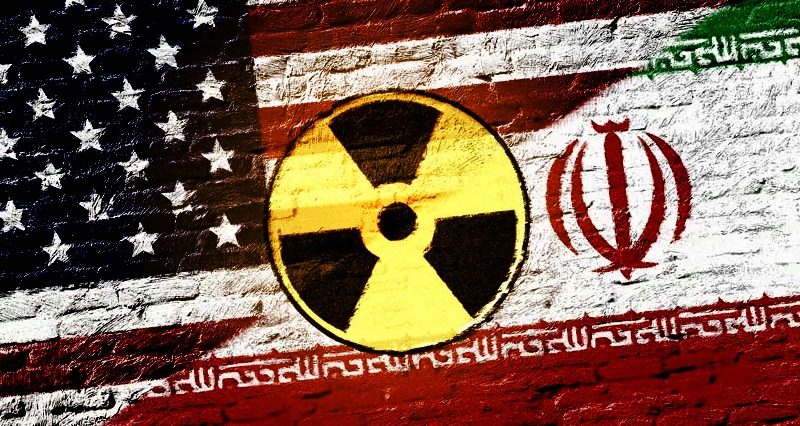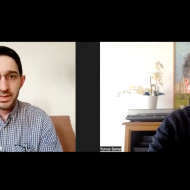In November 2004, the three European powers (Britain, France, and Germany) known as European Troika, secured a pledge from Iran to halt its uranium enrichment program, and Iran allowed the International Atomic Energy Agency (IAEA) to Plump and Seal all Iranian nuclear facilities.
The agreement was known as the Saad Abad agreement because it was signed in Saad Abad Palace in North Tehran.
The three-page European proposal included a condition that Iran should “cease to develop or operate facilities which would give it the capacity to produce fissile material, including any enrichment or reprocessing capability”.
Tehran balked at the insistence on “indefinite” suspension of uranium enrichment, while the Europeans demanded the indefinite freeze until “an acceptable long-term agreement” was reached.
Iran accepted suspending its nuclear activities for a short period to show its goodwill, but Tehran insisted on its right under international treaties to develop its nuclear industry for civil purposes.
At that time President George Bush insisted that if the Iranians have not stopped their enrichment activities by November 25th, 2004, when the board of the International Atomic Energy Agency should have met in Vienna, the EU troika would back Washington in taking the crisis to the UN security council in New York, which could entail sanctions on Iran.
The Saad Abad agreement was signed by the current Iranian president, Hassan Rouhani, who was representing Iran as the secretary general of Iranian Supreme National Security Council and Iran stopped all its nuclear activities with a promise that the crises will not be taken to the UN Security Council and no sanctions could be entailed on Iran and that it could start its nuclear program again in future after the international concerns die down.
But this did not satisfy the Americans, and at November 25th of that year, the Iranian nuclear debate was taken to UN Security Council and sanctions were placed on Iran.
Though the Europeans promised to stand against American bullying of Iran, they hesitated to support the deal they signed and preferred to take the side of their ally.
They thought that Iran would never dare to get out of the deal or break the IAEA seals and start its nuclear program again.
At that time, Iran had 190 first Generation nuclear centrifuges and hoped that it could be permitted to have 3.67 percent of Uranium enrichment as its international rights entailed, it was even happy to be allowed to only use these 190 centrifuges, nothing more.
The new sanctions weakened the reformist camp among the Iranian society and forced Iranian reformist president, at that time, Mohammad Khatami, to break the IAEA seals and started the Iranian nuclear program in an answer to the new sanctions, just two months before the Iranian presidential elections.
However, in 2005, the Iranian people were tired of reformist promises to solve the debates with the west and voted for Mahmoud Ahmadinejad.
President Ahmadinejad was a believer in taking a hard-line approach to the US, and that the only way to stand against American bullying was to escalate confrontation in the region, forcing the other side to choose between peace and war.
President Ahmadinejad was able to supercharge Iranian nuclear activities with the tools at hand and the enrichment of Uranium reached a 20% rate with more than 19000 modern nuclear centrifuges including 8th generation centrifuges (every 8th generation centrifuge could enrich Uranium 8 times faster than the first generation).
Americans and European countries had to spend about 10 years of effort to convince the Iranians to sit at the negotiation table again, and this time, they convinced the Iranians that they would have to negotiate with the Americans too.
No one can deny that the P5+1 negotiations with Iran were mainly official negotiations between Iran and the US– the other countries were there to supervise the talks and guarantee the outcome.
In 2015, these talks lead to the JCPOA (Joint Comprehensive Plan of Action) and though everyone thought that the P5+1 signature should be enough for Iran, the Iranian negotiating team was afraid of US betrayal, so the agreement was taken to UN Security Council to turn into a Security Council Resolution.
Well, it is obvious now that their predictions were justified, and as usual, the Americans didn’t abide by their commitments.
According to more than thirteen IAEA reports, Iran implemented all its commitments in the JCPOA and the other side did not.
European countries promised Iranians that they would take procedures to ensure that Iran could benefit the JCPOA even without the US in it, but still, we notice that Europeans are not ready to take a strong stand to show their independence from American hegemony.
Most likely, the Europeans, again, believe that Iran would not dare to pull out of the JCPOA but as they were wrong last time seems that they will be wrong again.
President Rouhani’s government is under great pressure from its opponents and from the Iranian people, and if you follow the new speeches of President Rouhani or government officials such as Foreign minister Mohammad Javad Zarif, you could easily note the change in their tone.
As the hardliners get more and more powerful behind the scenes, the government has to change its rhetoric from at least moderate to conservative to satisfy those pressuring it.
President Rouhani got away from an impeachment due solely to his strong support base, but this does not mean that another could also get away with it.
If the European countries don’t find a solution which convinces Iran to stay in the JCPOA, we should not be shocked if we wake up one day and hear that president Rouhani himself give the order to restart Iranian Nuclear activities.
At that time, this means that the hardliners won again, and their strategy of raising tensions in the region will become Iranian policy again, and if for any reason the Middle East will actually face tragedy resulting from these policies, the Europeans will be the first to bear the consequences.
As usual, the Americans are safely out of harm’s way.









Leave a Reply